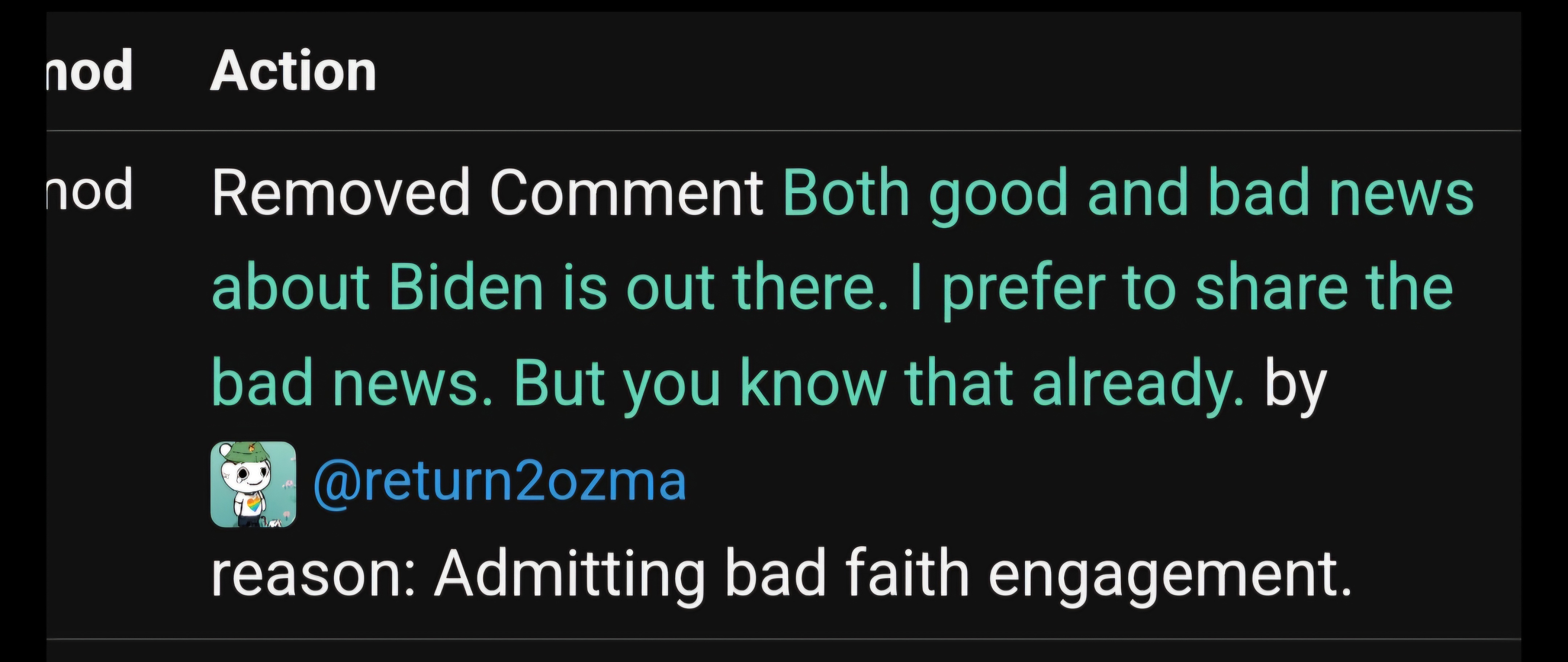You may have noticed a distinct lack of return2ozma. This is due to their admitting, in a public comment, that their engagement here is in bad faith:

I’m sure there will be questions, let me see if I can address the most obvious ones:
- Can I still post negative stuff about Biden?
Absolutely! We have zero interest in running an echo chamber. However, if ALL you’re posting is negative, you may want to re-think your priorities. You get out of the world what you put into it and all that.
- Why now?
Presumption of innocence. It may be my own fault, but I do try to think the best of people, and even though they were posting negative articles, they weren’t necessarily WRONG. Biden’s poll numbers, particularly in minority demographics ARE in the shitter. They are starting to get better, but he still has a hell of a hill to climb.
- Why a 30 day temp ban and not a permanent ban?
The articles return2ozma shared weren’t bad, faked, or from some wing-nut bias site like “beforeitsnews.com”, they were legitimate articles from established and respected news agencies, pointing out the valid problems Biden faces.
The problem was ONLY posting the negatives, over and over and then openly admitting that dishonest enagement is their purpose.
Had they all been bullshit articles? It would not have taken anywhere near this much time to lay the ban and it would have been permanent.
30 days seems enough time for them to re-think their strategery and come back to engage honestly.


But it isn’t. It’s shutting down an admitted propagandist.
# We are all propagandists now
If you don’t like the title, don’t do the work.
So, you did read the article, thanks.
The more outrage we see, the more outrage we post.